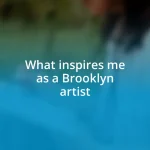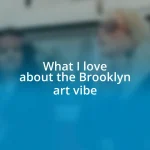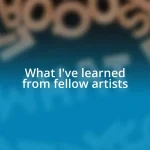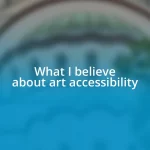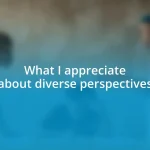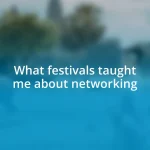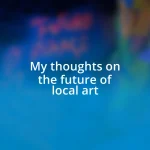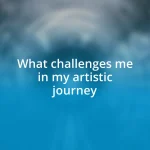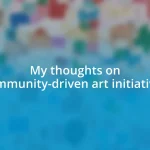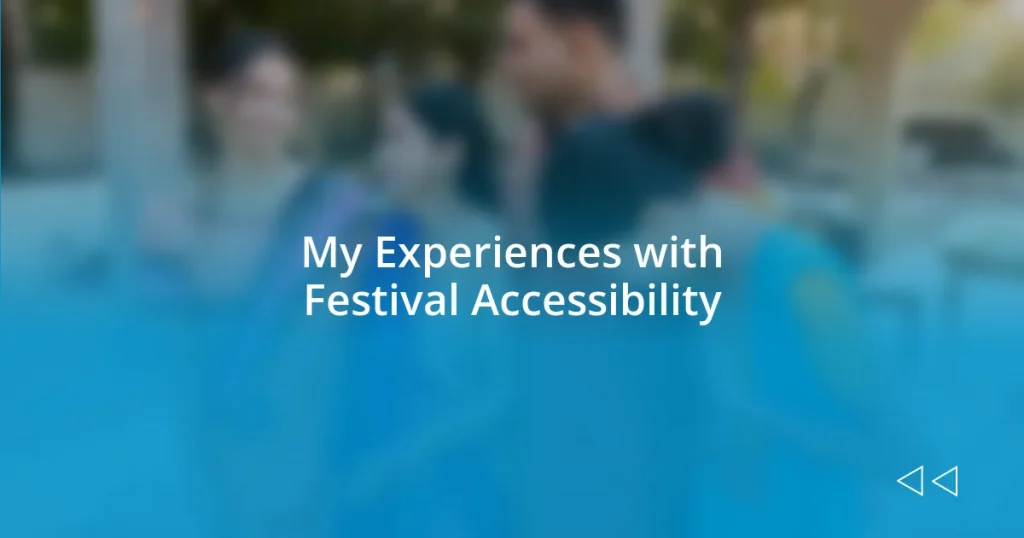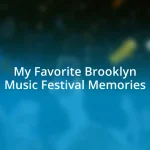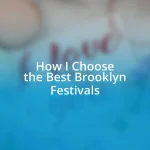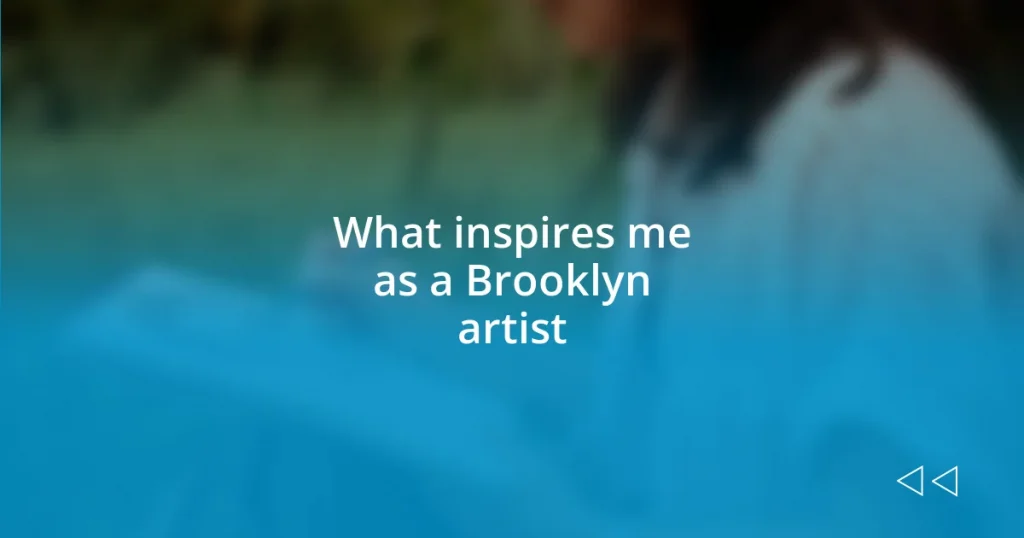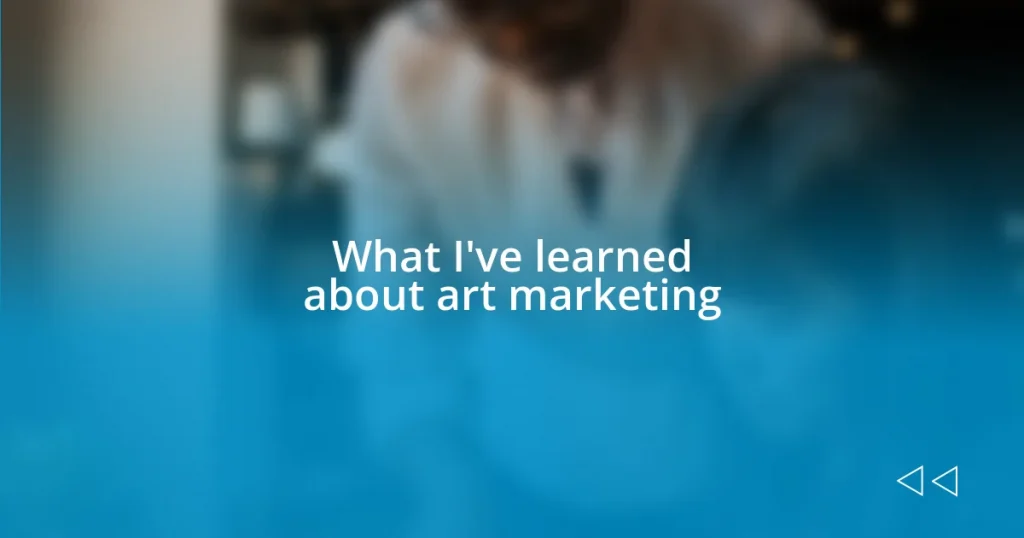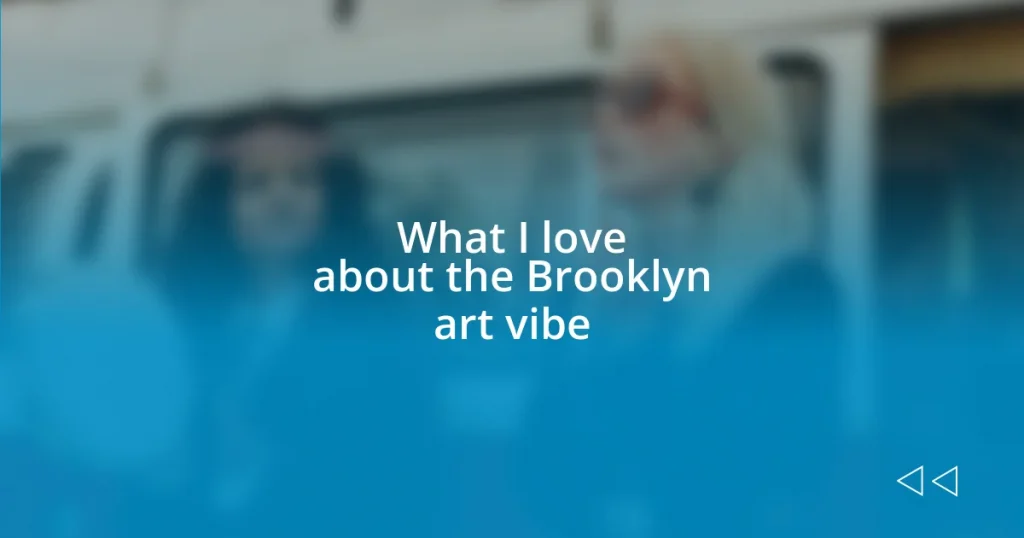Key takeaways:
- Festival accessibility is essential for creating inclusive environments, highlighting the need for clear signage, sensory-sensitive areas, and accessible facilities.
- Effective communication with event organizers enhances accessibility experiences, while the lack of it can lead to anxiety and uncertainty for attendees with disabilities.
- Utilizing resources like local advocacy groups and online forums can provide valuable insights and support for navigating festivals and ensuring a successful experience.
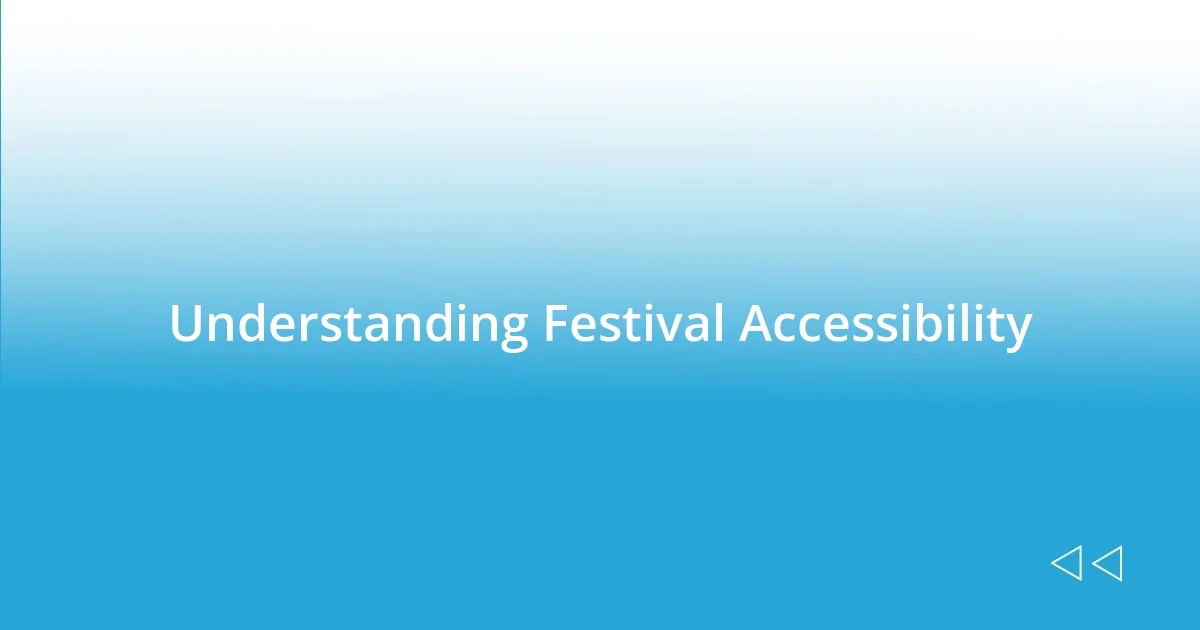
Understanding Festival Accessibility
Festival accessibility is more than just a set of guidelines; it’s about creating an inclusive environment where everyone feels welcome. I remember attending a beloved music festival where, despite the vibrant atmosphere, the lack of accessible facilities hit home deeply. Watching a friend struggle with a steep hill while navigating a wheelchair was a painful reminder that good intentions don’t always lead to a truly accessible experience.
As I walked through the festival grounds, I noticed various mobility aids scattered among attendees, highlighting how essential these aspects can be for engagement. But have you ever stopped to think about what could happen if a person with a sensory sensitivity walked into a chaotic space without any consideration for their needs? I’ve seen firsthand how overwhelming sights and sounds can affect individuals, making pre-planned quiet areas not just an amenity but a necessity.
Emotional connections are built at festivals, yet they can only be fully experienced by everyone when barriers are dismantled. One year, I witnessed a volunteer step in to help someone who had fallen due to an inaccessible path. The gratitude in that person’s eyes, a mix of relief and hope, embodied the core of why accessibility is vital. It’s about creating a shared space where memories are not hindered by obstacles but enhanced by understanding and support.
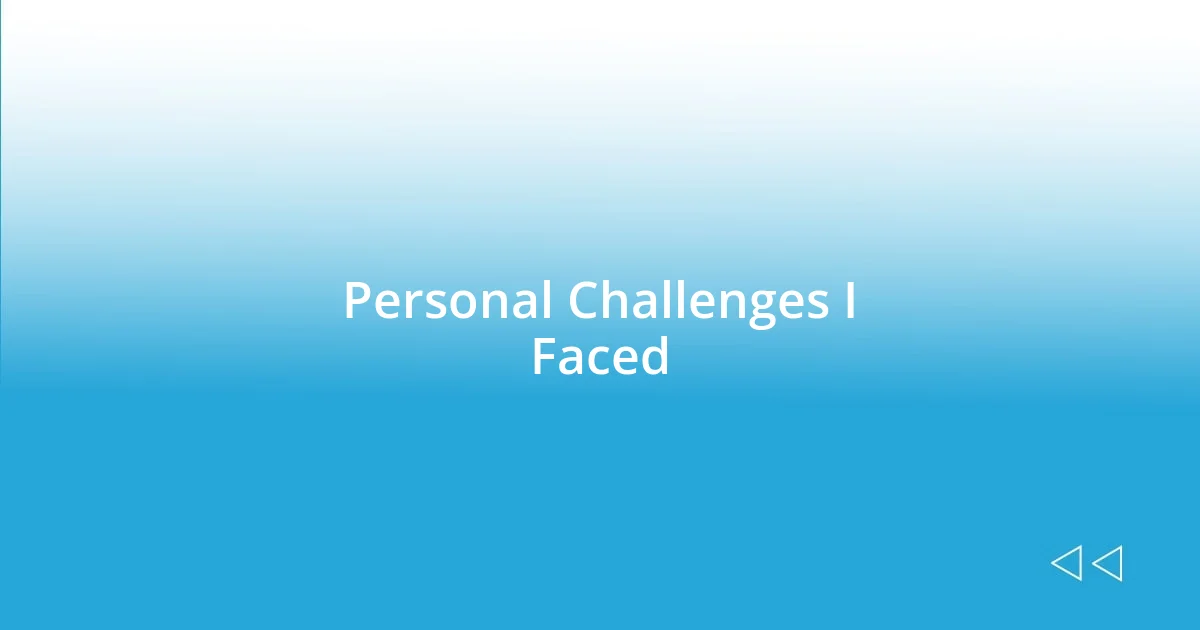
Personal Challenges I Faced
Facing personal challenges at festivals can be quite eye-opening. I vividly remember one time when I was navigating a popular outdoor festival, and I encountered a complete lack of clear signage for accessible routes. After wandering for what felt like ages, I finally found a path, but it took a toll on my energy and enthusiasm. It’s frustrating when you just want to enjoy the event but feel sidelined by poor planning.
Another challenge was the sensory overload I experienced in crowded spaces. One moment that sticks with me is when I stepped into a vibrant area filled with music, laughter, and chatter, only to feel my heart race and anxiety spike. I had to retreat to a quiet corner where I could take a breath and regroup. This experience drove home the fact that while festivals are meant to be celebratory, they can also inadvertently isolate those of us who are more sensitive to sensory stimuli.
Navigating the restroom situation at festivals can also be a daunting experience. I recall a day when I desperately needed to use an accessible restroom, only to find none were available or were situated far from the main activities. It made me realize how often we take basic amenities for granted until faced with a situation that highlights their absence. These challenges reinforce the urgent need for a more thoughtful approach to festival accessibility.
| Challenge | Experience |
|---|---|
| Lack of Clear Signage | Wasted Time Searching |
| Sensory Overload | Heightened Anxiety |
| Inaccessible Restrooms | Frustration and Discomfort |
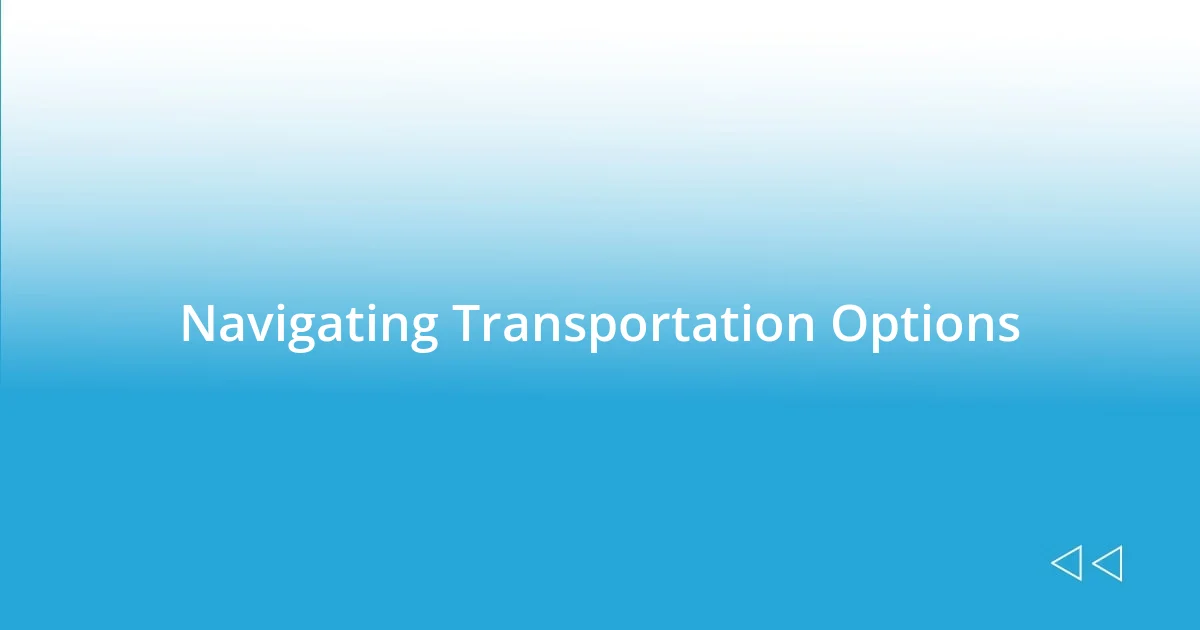
Navigating Transportation Options
Navigating transportation options to festivals can be a bit daunting, particularly when considering accessibility. I’ll never forget the time I arrived at a festival, eager to enjoy the experience, only to find myself dealing with limited accessible public transport options. Many local buses were not equipped with ramps, which made me question how someone using a wheelchair could ever reach the event. It left me with a sense of unease because it felt like the transport system didn’t prioritize inclusivity.
When planning for accessibility, it’s crucial to consider a few key transportation options that cater to all. Here are some thoughts based on my experiences:
- Public Transport: Some cities provide accessible buses or train services, but always check for route accessibility ahead of time.
- Ridesharing Services: Availability of wheelchair-accessible vehicles can be a game changer, so knowing which ridesharing platforms offer this feature is a must.
- Festival Shuttle Services: Take note of dedicated shuttles that might provide accessible options from major transport hubs, and confirm their routes in advance.
- Parking: Ensure there is adequate designated accessible parking near the festival entrance, as this can save time and energy when arriving at the venue.
Ultimately, it’s essential to plan ahead and communicate your needs to ensure a stress-free journey to the festivities. Each option can significantly impact the experience of attendees with varying abilities, so I truly believe that more awareness around these logistics would foster a more welcoming environment for everyone involved.
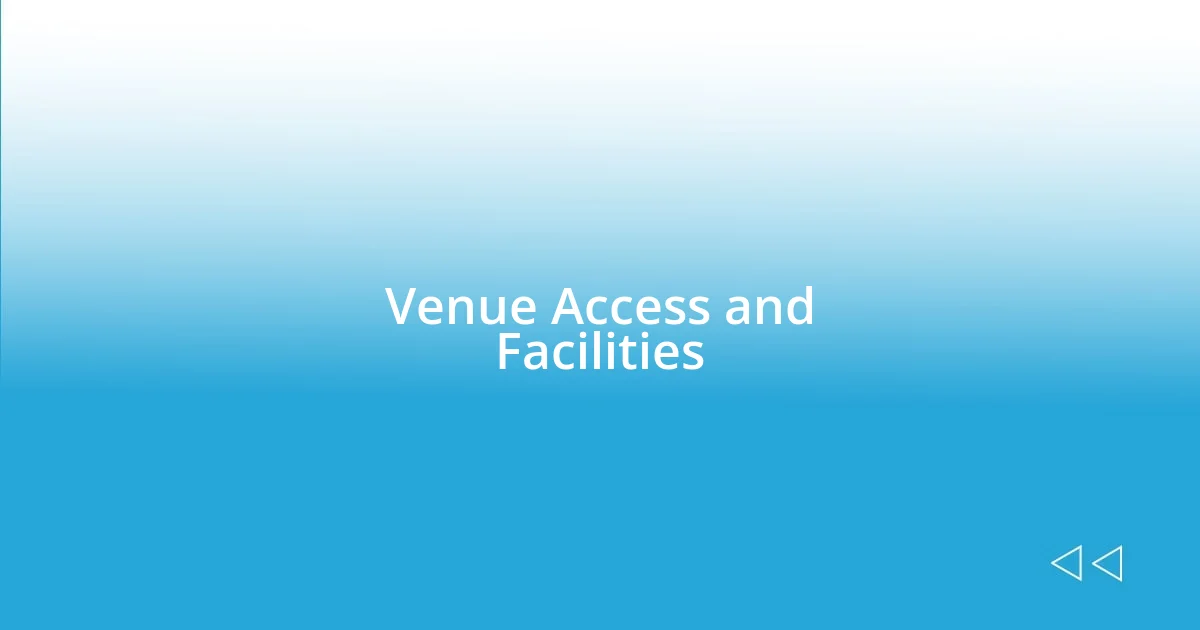
Venue Access and Facilities
When I finally reached the festival venue, I was relieved to see some accessible entrances, but that relief quickly turned into disappointment. The paths leading to these areas were uneven and cluttered with equipment, making it a bit of a challenge to navigate. It really made me think: shouldn’t festival organizers prioritize clear, well-maintained access routes to ensure everyone has an enjoyable experience?
Restroom facilities can often make or break an outing for me. I remember standing in line for what felt like ages waiting for an accessible option that was clean and nearby. The lack of accessible restrooms near the main stage meant I missed out on some of my favorite performances. It’s moments like these that remind me how vital it is for festivals to plan thoughtfully around the needs of all attendees.
The seating areas at festivals also deserve a mention. I still recall the frustration of finding a space to rest that was both accessible and not too far from the excitement. For many, having designated zones where you can soak up the atmosphere without feeling like you’re an afterthought is crucial. How can we enhance the overall festival experience if we don’t cater to the diverse needs of our audience? Ensuring that venue access and facilities accommodate everyone isn’t just a nice-to-have; it’s essential for fostering a truly inclusive atmosphere.
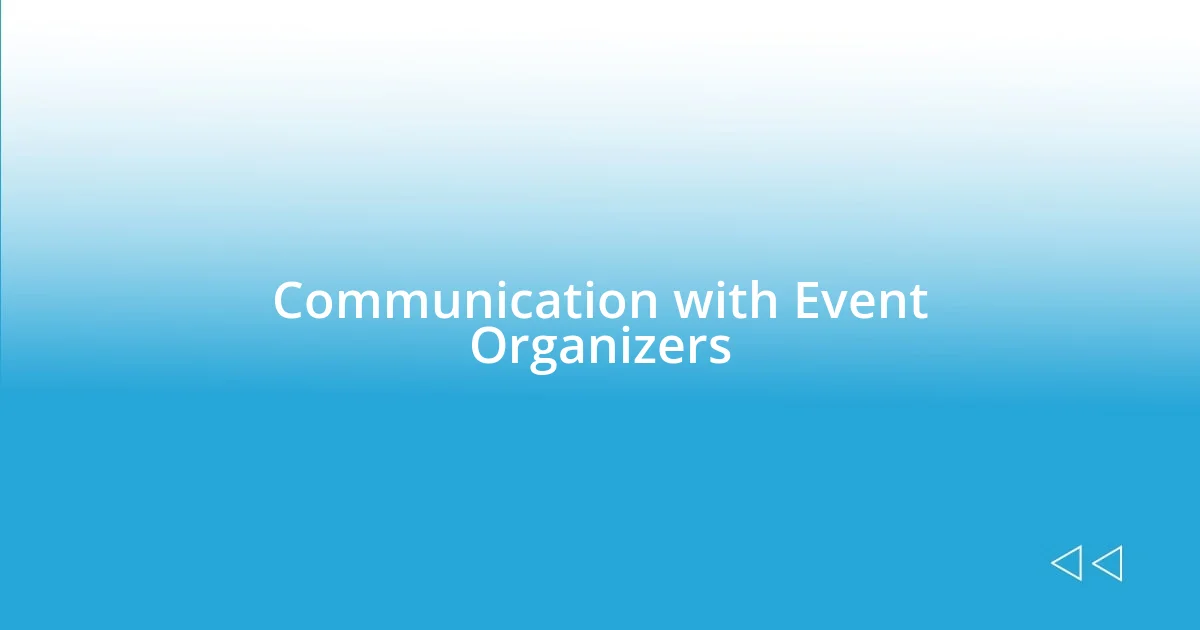
Communication with Event Organizers
Communication with event organizers is a crucial step in enhancing festival accessibility. I vividly recall my experience reaching out to an organizer before a major music festival, asking about ramp access and designated seating for those with disabilities. Their prompt and detailed response made me feel heard and valued, setting a positive tone for my upcoming experience. It reinforced my belief that open dialogue can significantly impact accessibility.
On another occasion, I encountered a festival where the communication was lacking. I had emailed them several times regarding the accessibility of certain areas, but it felt like I was hitting a wall. The uncertainty left me anxious as the event approached, and I couldn’t shake the feeling that my needs were not a priority. How can organizers foster an inclusive atmosphere if they aren’t willing to engage with attendees about their concerns?
From my perspective, proactive communication is a win-win for both festival organizers and attendees. When organizers showcase their commitment through clear, accessible information online, it makes a world of difference. I often appreciate when event websites include a dedicated accessibility section or a contact point for inquiries. It signals to me that the organizers are not just ticking boxes but genuinely care about the experience of everyone attending.
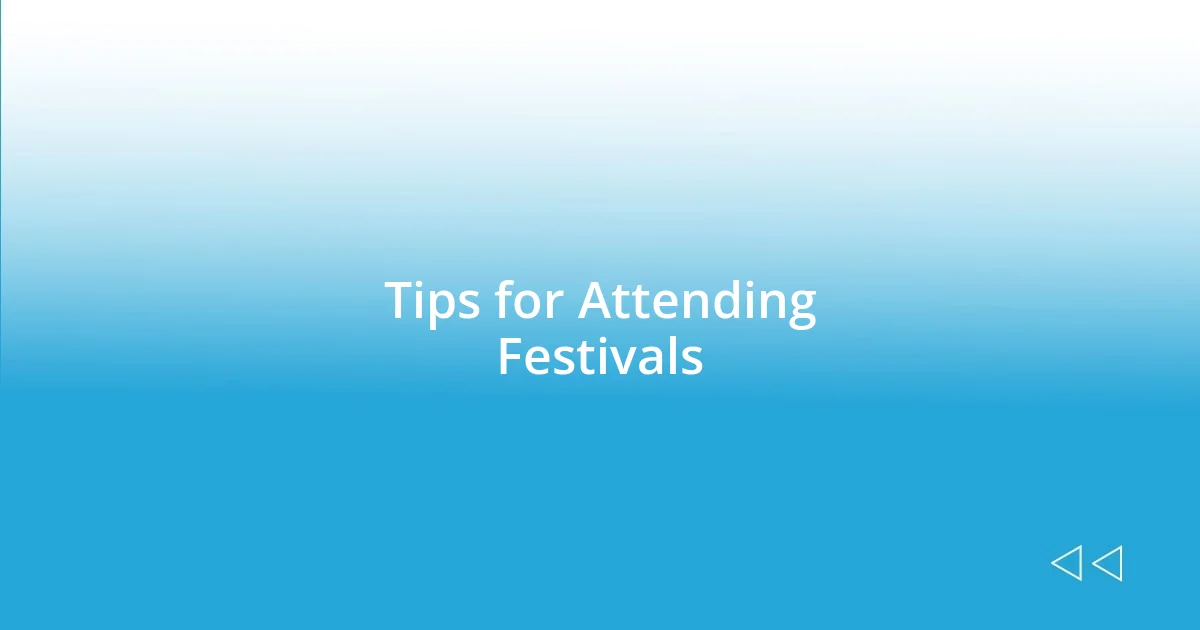
Tips for Attending Festivals
When attending a festival, planning your arrival can make a significant difference. I’ve learned the hard way that getting to the venue early is essential, especially if you need accessible parking. One year, I arrived later than I intended and ended up in a frustrating search for a suitable spot, which only added to the stress of navigating the crowd. Have you ever felt that rush of anxiety when you can’t find the access you need? It’s definitely not a feeling I want to relive!
Another tip is to familiarize yourself with the festival layout ahead of time. I vividly remember attending a large event, where I took the time to study the map beforehand. This helped me locate accessible entrances and restroom facilities along with other accommodations. I can’t emphasize enough how reassuring it can be to have that knowledge in your back pocket. It made the whole experience smoother and allowed me to fully enjoy the performances without constantly worrying about logistics.
Lastly, have a backup plan for when things don’t go as expected. I once attended a festival where a storm swept through, causing some access paths to become muddy and impassable. Luckily, I’d scouted alternative routes and was able to navigate through the chaos efficiently. Preparing for the unexpected can turn potential frustrations into manageable challenges, allowing you to embrace the joy of the festival rather than feeling sidelined. How do you approach the unpredictability of events? Preparing ahead is a strategy that has served me well time and again!
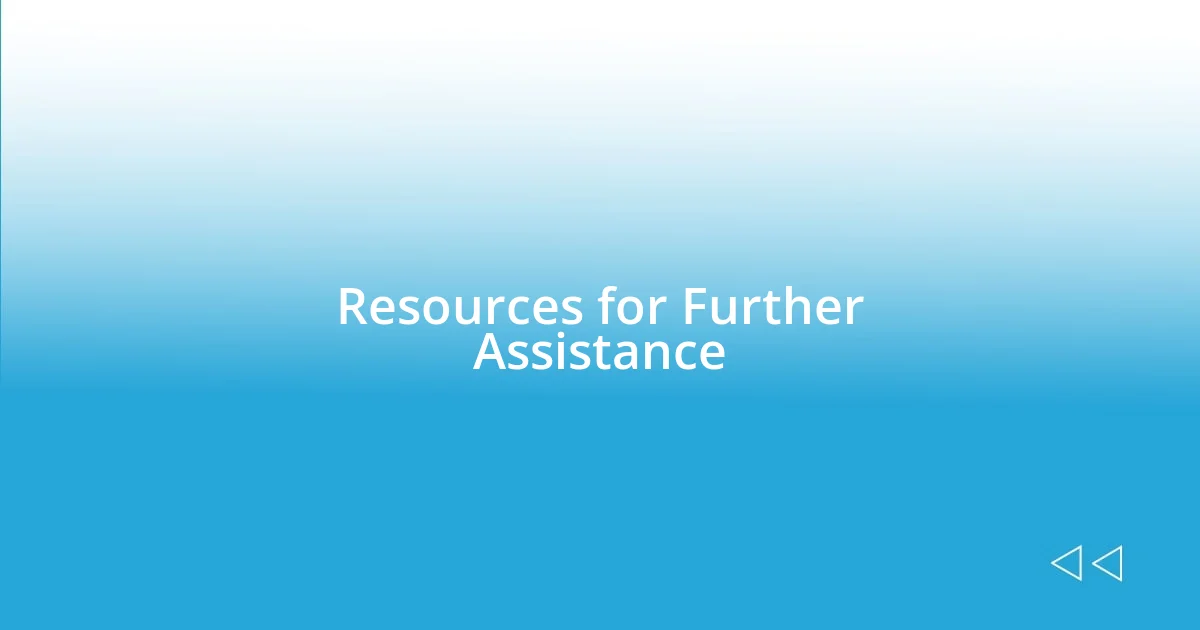
Resources for Further Assistance
One valuable resource I’ve found is local accessibility advocacy groups. Whenever I’ve planned my festival outings, I consistently turn to these organizations for guidance. They often have firsthand knowledge about which festivals provide the best accommodations and can offer tips on navigating the venue based on their experiences. Have you ever reached out to a local advocacy group? I’ve found their insights instrumental in ensuring I’m prepared.
Online forums and social media groups centered around festival-going can also be incredibly helpful. There are times when I’ve posted questions about specific events and received insightful responses from fellow attendees. Those shared experiences provide real-time feedback about accessibility features and can illuminate potential issues that aren’t apparent on official websites. Don’t underestimate the impact of community knowledge—there’s something powerful in hearing from those who’ve walked in the same shoes.
Lastly, don’t forget about the wealth of information on websites specifically designed for attendees with disabilities. I remember stumbling upon a site that not only listed accessibility options at various festivals but also featured reviews from attendees. This resource was a game-changer, allowing me to prioritize events that truly catered to my needs. Wasn’t that a relief? It’s comforting to know there are dedicated platforms where people share their voices, leading to more inclusive experiences for everyone.

